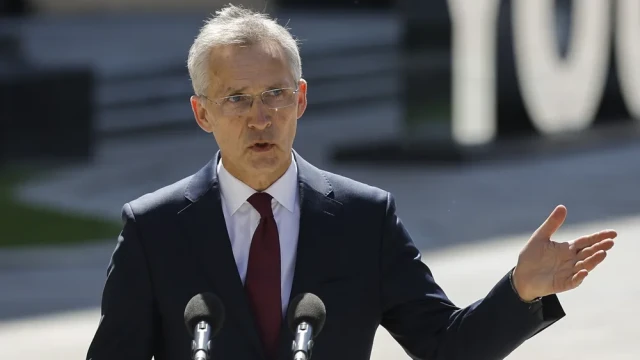This was stated by NATO Secretary General Jens Stoltenberg at the spring session of the NATO Parliamentary Assembly in Sofia, BGNES reported.
"NATO is the strongest and most successful alliance in history because it unites us, helps us develop and adapt as the world changes. We live in a dangerous world today and we have to respond to that," Stoltenberg said.
He emphasized that NATO's main goal is not to make war, but to prevent war.
"An attack on one is an attack on all," warned the Secretary-General.
Stoltenberg welcomed the delegation of the newest member of the Alliance - Sweden.
The Secretary General noted that Russia is using aggression and force against Ukraine, Georgia and Moldova.
Jens Stoltenberg condemned China's support for Russia with dual-use goods - civil and military.
He also criticized the role of North Korea, which supplies thousands of artillery shells to the Russian army.
In connection with what was said, Stoltenberg called for strengthening the partnership between NATO and the democracies in the Asia-Pacific region.
He stressed that NATO will show resolve at the Alliance Summit in Washington by demonstrating steps towards acquiring more forces and capabilities.
"Things inside the union are improving. 18 countries invest more than 2% of GDP on defense. In 2014, when we committed to more investment - 2% of GDP, only three countries did it. This year, back in February, there were 18, and then Sweden joined and it became 19. I expect at least two-thirds of the allies to spend 2% of GDP by the meeting in Washington," Stoltenberg pointed out.
The other key topic in Washington will be Ukraine.
"NATO allies have provided unprecedented assistance to Ukraine - military, humanitarian and economic. 99% of the aid was provided by the NATO countries," the Secretary General said, adding that this allowed the Ukrainians to liberate 50% of the occupied territory since the beginning of the war.
Jens Stoltenberg recalled that in recent months, Ukraine has not received everything promised due to the delay of the 60 billion dollars in aid in the US Congress and the failure of the European initiative for 1 billion shells.
"These discrepancies and delays in military support have an impact on the ground," he stressed. /BGNES







